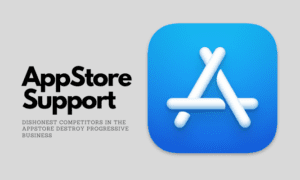Introduction
The debate between using Flutter and Swift for iOS app development is a prominent one in the tech community. Both technologies offer unique advantages, making it crucial to understand their differences to make an informed decision for your project. This article delves into the key aspects of cross-platform app development, comparing Flutter and Swift in terms of performance, ease of use, community support, and more.
Understanding Cross-Platform Development
Cross Platform development allows developers to create applications that can operate on multiple operating systems using a single codebase. This approach saves time and resources while providing an user experience across platforms. When it comes to iOS app development the choice between a platform framework like Flutter and a native language like Swift holds great importance.
What is Flutter?
Flutter is an open source UI software development kit (SDK) developed by Google. It empowers developers to build compiled applications for web and desktop platforms using just one codebase. Utilizing Dart as its programming language Flutter offers a range of designed widgets to facilitate the creation of seamless user interfaces.
What is Swift?
Swift stands out as an user friendly programming language created by Apple for use in developing applications, across iOS, macOS, watchOS and tvOS platforms.
Introduced in 2014 Swift was created with a focus, on safety, speed and interactivity. It has rapidly gained popularity as the choice for developing iOS applications because of its strong performance and user friendly nature.
Flutter vs. Swift: Overview
When comparing Flutter and Swift, it’s essential to consider various factors such as performance, development speed, ease of use, and community support. Both have their strengths and cater to different types of projects and developer preferences.
Performance Comparison
Runtime Performance
Swift generally offers superior runtime performance because it is a native language for iOS. This allows apps to run more efficiently and take full advantage of the underlying hardware.
Compilation Speed
Flutter provides faster compilation times due to its hot reload feature, which allows developers to see changes in real-time without restarting the app. Swift, on the other hand, requires a full recompile, which can be time-consuming.
Memory Usage
Memory management in Swift is more efficient as it leverages native resources. Flutter, being a cross-platform framework, might consume more memory, which can affect the performance on lower-end devices.
Development Speed
Hot Reload vs. Live Updates
Flutter’s hot reload feature is a significant advantage, allowing developers to make and see changes instantly. Swift lacks this feature, which can slow down the development process.
Code Reusability
Flutter excels in code reusability, enabling developers to use the same codebase for both iOS and Android. Swift is limited to iOS, requiring separate codebases for other platforms.
Ease of Use
Learning Curve
Swift has a steeper learning curve, especially for developers new to iOS development. Flutter, with its extensive documentation and community support, is often easier to pick up.
Documentation
Both Flutter and Swift have comprehensive documentation. However, Flutter’s documentation is particularly praised for its clarity and ease of use, making it accessible for beginners.
UI/UX Design Capabilities
Customizability
Flutter offers extensive customizability with its widget-based architecture, allowing for highly personalized UI designs. Swift also allows for detailed customization, but requires more effort and expertise.
Widget Libraries
Flutter comes with a rich set of pre-designed widgets that simplify the development process. Swift relies on UIKit and SwiftUI, which, while powerful, may require more time to master.
Community Support and Resources
Developer Community
Flutter boasts a large and active developer community, providing a wealth of resources, tutorials, and third-party libraries. Swift also has a strong community, particularly among iOS developers.
Learning Resources
Both frameworks offer numerous learning resources. Flutter, however, benefits from Google’s extensive support, including official tutorials and documentation.
Third-Party Libraries and Integrations
Plugin Availability
Flutter has a vast ecosystem of plugins that facilitate integration with various services and APIs. Swift, being older, has a more mature ecosystem with robust libraries and frameworks.
Integration with Native Features
Swift, being native to iOS, integrates seamlessly with all native features and APIs. Flutter provides a decent level of integration but may require additional workarounds for some native functionalities.
Debugging and Testing
Tools and Frameworks
Both Flutter and Swift offer excellent debugging tools. Flutter uses Dart DevTools, while Swift developers use Xcode’s powerful suite of debugging and testing tools.
Error Handling
Swift’s error handling is robust, leveraging native capabilities. Flutter’s error handling is also strong but can be slightly more challenging due to its cross-platform nature.
Platform-Specific Features
iOS-specific Capabilities
Swift, being designed specifically for iOS, offers full access to all platform-specific features. Flutter supports many iOS features but might lack some of the more advanced capabilities available in Swift.
Cross-Platform Limitations
Flutter’s cross-platform approach can introduce limitations in accessing some native iOS features. Swift, on the other hand, does not face such constraints.
Security Aspects
Built-in Security Features
Swift includes many built-in security features, such as safe memory management and type safety, enhancing app security. Flutter also provides security features but may require additional configurations to match Swift’s level of security.
Vulnerability Management
Swift’s integration with Apple’s ecosystem ensures timely security updates and patches. Flutter relies on both Google and the open-source community for security updates, which can be less predictable.
Cost of Development
Development Costs
Developing with Flutter can be more cost-effective due to its cross-platform nature, reducing the need for separate codebases for different platforms. Swift development can be more expensive, especially if you need to develop for multiple platforms.
Maintenance Costs
Maintenance is generally easier and cheaper with Flutter since updates can be applied across both iOS and Android from a single codebase. Swift requires separate maintenance for iOS and other platforms.
Future Trends in App Development
Emerging Technologies
Flutter is quickly adopting new technologies, with significant updates and improvements. Swift continues to evolve, with Apple introducing new features and enhancements regularly.
Industry Predictions
Industry experts predict that both Flutter and Swift will continue to grow, with Flutter gaining ground in cross-platform app development and Swift remaining a dominant force in native iOS development.
Flutter Advantages
Flutter’s key advantages include faster development cycles, hot reload, and the ability to use a single codebase for multiple platforms, making it an attractive option for many developers.
Swift Performance
Swift’s performance is unmatched in iOS app development due to its native capabilities, offering the best possible integration and efficiency for iOS apps.
Choosing the Right Framework for Your Project
Choosing between Flutter and Swift ultimately depends on your project’s specific needs, including performance requirements, development speed, and long-term maintenance considerations.
FAQs
What are the main differences between Flutter and Swift?
Flutter is a cross-platform framework using Dart, while Swift is a native programming language for iOS.
Which is more performant for iOS apps, Flutter or Swift?
Swift typically offers better performance for iOS apps due to its native nature.
Is Flutter easier to learn than Swift?
Flutter is often considered easier to learn, especially for beginners, due to its extensive documentation and supportive community.
Can I use Flutter to develop for both iOS and Android?
Yes, Flutter allows you to develop for both iOS and Android from a single codebase.
Are there any major limitations to using Swift for iOS apps?
Swift is limited to iOS and other Apple platforms, requiring separate development efforts for other platforms.
How does the cost of developing with Flutter compare to Swift?
Flutter can be more cost-effective due to its cross-platform capabilities, reducing the need for separate codebases and maintenance efforts.
Conclusion
Both Flutter and Swift offer unique benefits for iOS app development. Flutter excels in cross-platform capabilities and development speed, while Swift provides unmatched performance and seamless integration with iOS. The choice between the two should be based on the specific requirements of your project and the expertise of your development team.



































